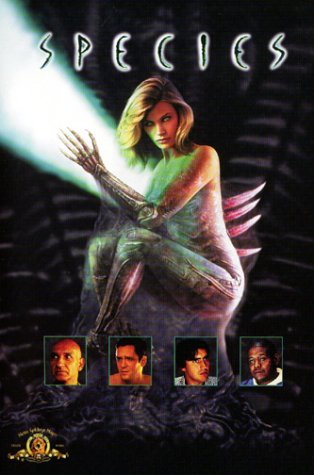Projects on SETI projects look for extraterrestrial signals from space. Work with dolphins, elephants, even chickens seeks to see if these animals are intelligent communicators. In all this, we take for granted that we understand how we humans, as social creatures, think and react. But our understanding of communications and social interaction relies on some unusual assumptions.
It turns out thinking like 'an alien' has its advantages for studying humanity. Notes researcher Baron-Cohen, "Lisa [Daxer, a student... describes] herself as almost like an alien, observing other humans."
Can you guess why Daxer has such valuable insights? Is she an anthropologist, or a sociologist? Perhaps a psychopathologist like Baron-Cohen? Nope. Our greatest insight into 'human intelligence' comes from humans who instrinsically think differently.
Jon Hamilton interviews Lisa Daxer and Simon Baron-Cohen in this NPR segment, Autism Gives Woman An 'Alien View' of Social Brains."So we didn't really focus on how complex social development is until people with autism pointed out to us that this is something that doesn't always just develop naturally" says Baron-Cohen. "People like Lisa have taught scientists a lot about the way humans interact socially."
Being a resident alien might seem like a burden, but it's really just a way of viewing the world. Under the idea of 'neurodiversity'-- that thinking different is neither a disfunction nor a crime-- it turns out that mild autism, for one, has some pretty interesting advantages.
Baron-Cohen says "As tool users, you know, we always needed individuals in the group who could invent new tools, whether we're talking about in Stone Age, just flints, or in the modern age, new computer chips."
Earlier I wrote on one avenue of capitalist advantages for autism in computer science. There have been related articles about how having ADHD can be an advantage for business start-up entrepreneurs.Now, there is no 'blessing or curse' dichotomy, and the worst thing you can do is go out and rewire your old bias that 'autism=bad' with 'autism=compsci' or 'ADHD=manage it' to 'ADHD=always succeeds!'.
But you can separate a person's behavior from their utility or functionality, and avoid pre-judging them based on a preconceived notion that there is just one way to think.In short, don't judge a book by its cover.
The interviewer notes "Lisa Daxer says she doesn't want a typical brain. Her autism is part of who she is. And she enjoys that her brain loves patterns and facts. But she says she will probably always feel like a bit of an alien."
 |
| Sure, you'll accept an alien if they're hot, but if they think different? It's Gort all over again. |
Daxer reminds us that being an alien isn't a terrible thing. She says "they'll never know some of the beautiful things I see, the tiny little patterns on a leaf or the intricacies of a circuit or learning a new fact and almost squealing in joy because it's so beautiful."
In bad SF movies, aliens always give threats, such as 'Surrender, puny humans, or die!". Here's one: embrace neurodiversity, you neurotypical humans, or die. Not because anyone will threaten you, but because you'll be excluding those whose insights our civilization requires.
Alex
Tuesdays at The Satellite Diaries and Friday at The Daytime Astronomer (twitter @skyday)





Comments